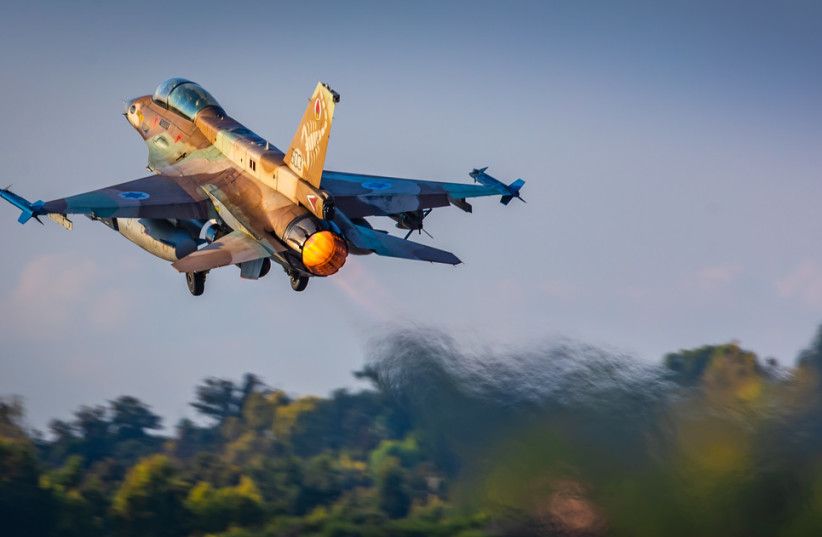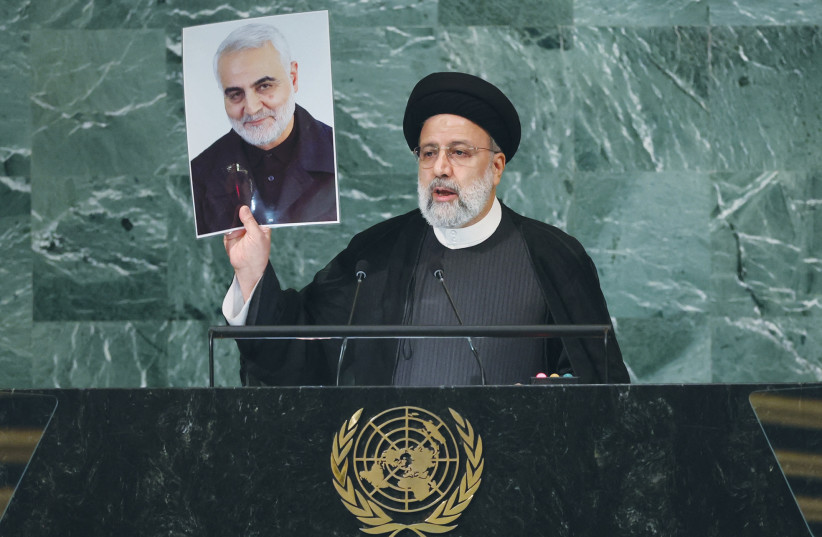by Amir Bohbot
According to officials, Israel has succeeded in almost completely curbing Iran's ability to transfer weapons to Syria and to manufacture weapons there.
 |
The Israeli Air Force works to fight new and developing threats across the region
(photo credit: IDF SPOKESPERSON UNIT)
|
The Israeli military has destroyed about 90% of Iran's military infrastructure and attempts to entrench itself - with Hezbollah - in Syria, top officials in the defense establishment claimed over the weekend.
According to the officials, Israel has in recent years succeeded in almost completely curbing Iran's ability to transfer weapons to Syria, to manufacture weapons on the country's soil and to establish a base in it with pro-Iranian forces.
According to the sources, the plan of the former commander of the Iranian Quds Force, Qassem Soleimani, who was killed by the Americans in 2020, has failed due to the IDF’s continued air campaign against the forces in Syria. The last alleged attack attributed to Israel in Syria was Friday when local media reported that the IDF attacked near the airport in Damascus after about a month of relative silence.
The sources said that despite the tension between Israel and Russia – which recently threatened Jerusalem not to transfer arms to Ukraine - the deconfliction mechanism to prevent Russian-Israeli friction in Syria is working as usual. Periods without attacks, the sources said, are usually the result of an Iranian decision to suspend the smuggling of weapons to Syria, in order to try and find a new route to trick Israel.

The security officials emphasized that the IDF severely damaged Iran's smuggling routes from the sea, from the air and even from the land from Iran to Syria.
As a result of the attacks, the ability of the Syrian army to produce weapons and ammunition has also been damaged since the Iranians and Hezbollah used the same factories for the production of their weapons.
The focus of the attacks in recent years has also been to stop the smuggling of components for CERS – the Centre D’Etudes et de Recherches Scientifiques (CERS) in Masyaf that is used by Iran to produce advanced missiles and weapons for its proxies.
Along with this, the assessment in Israel is that Syrian President Bashar Assad has reduced the activity of Iran and Hezbollah in his country, with an emphasis on the Syrian Golan Heights and the south of the country.
According to sources in Israel, Assad has realized that in the coming years he will not be able to regain territories occupied by the Kurds, including the Turks, and instead focuses his power on trying to restore stability to the major cities with an emphasis on Damascus and the region including the coastline.
Amir Bohbot
Source: https://www.jpost.com/arab-israeli-conflict/article-720347
No comments:
Post a Comment